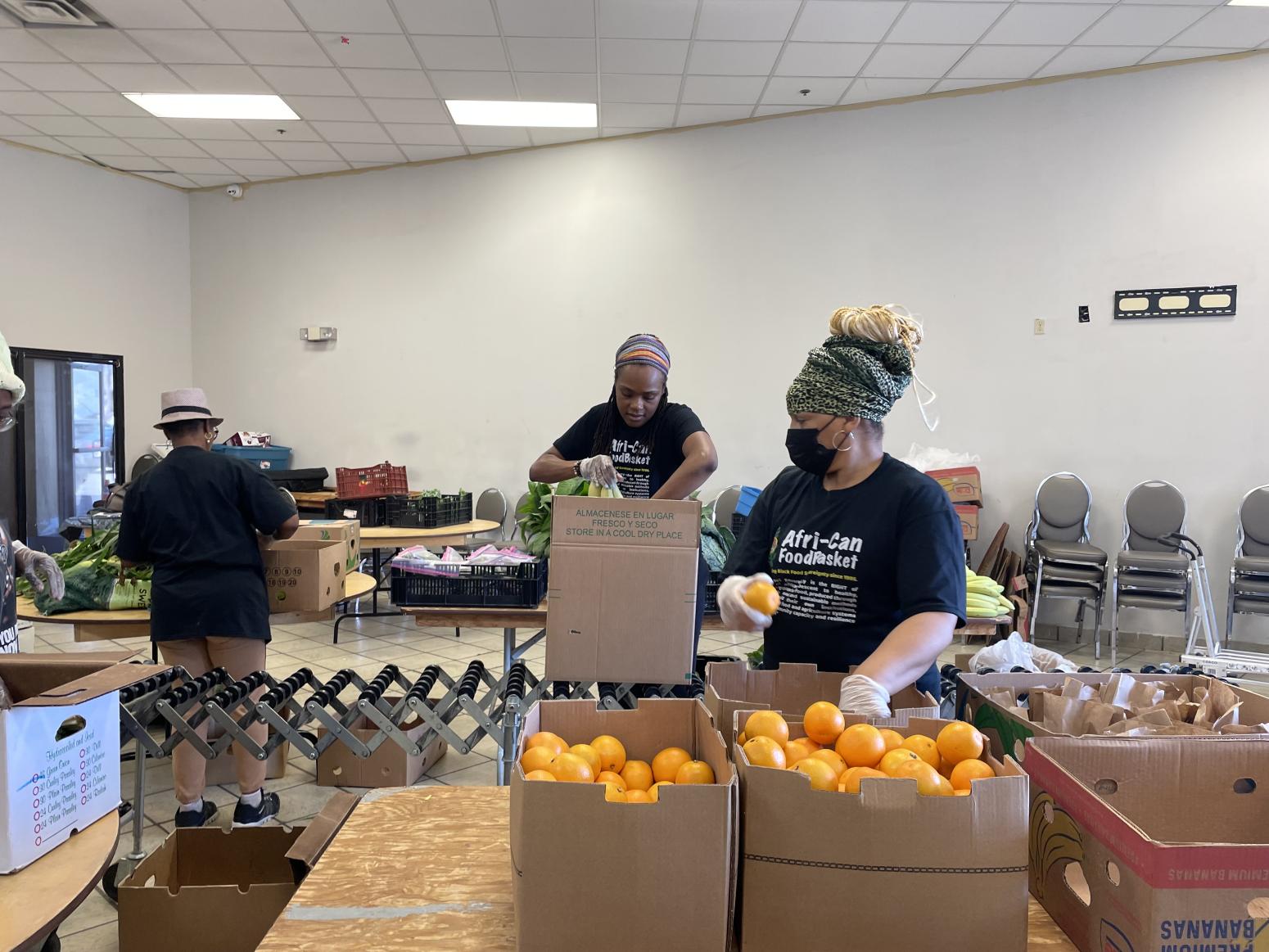Food insecurity on the rise: how are we responding in TCHC communities
With an affordability issue impacting tenants' ability to purchase food, TCHC has partnered with tenants and community agencies to address food insecurity.
This article is part of a series that highlights the importance of food security partners, programs and initiatives in contributing to the overall health and wellbeing of TCHC communities. Read and view other articles and videos in this series.
As living costs continue to rise in Toronto, more people are experiencing food insecurity and difficulty affording good and healthy food. According to a recent annual report published by Daily Bread Food Bank, one in ten Torontonians depends on food banks to make ends meet, which is double the number of people who relied on food banks in 2022.
Arsema Berhane, the Director of Programs and Partnerships at Toronto Community Housing (TCHC), said there are several factors which create obstacles for tenants in accessing food—notably, the feasibility of getting to a grocery store from a TCHC community. “Not having access to fresh, healthy food has manifested in various ways in their health and wellbeing,” said Arsema.
Other factors contributing to food insecurity in TCHC communities include low wages, food inflation and systemic inequalities in food equity.
“There's a lot of people that are very desperate for food, especially as the food prices have increased drastically over the last little while,” said William Ross, LOFT Community Services, Residential Support Worker. “It keeps shooting up to the point where it's unaffordable just to get the basics.”
Arsema also noted the affordability issue in the city has created another barrier for tenants to access food. “Sometimes tenants have to make a decision: am I putting food on the table or am I paying a bill? A lot of our tenants are always having to juggle and figure out how to make ends meet.”
The severity of these factors has led to poor outcomes for tenants in their physical health, mental health, and overall wellbeing.
“People who have more restricted finances are forced to eat in ways that they don't want to eat. And that creates a lot of chronic disease,” said Tara Ramkhelawan, a coordinator at the Waterfront Good Food Market. “It's easier on the system for all Canadians to make sure that people eat better so that they don't have to pay.”
Making food accessible in communities
Recognizing the need to address food insecurity, TCHC has partnered with organizations and community groups to help establish food programs and food banks.
At 1021 Birchmount Road, the community has decided to utilize their green and community spaces to launch food security programs, which have helped parents provide food for their families and, most importantly, space to grow food.
“We are blessed here at 1021 Birchmount because there is an abundance of green space,” said Laura Hammond, Executive Director of Birchmount Community Action Council. “We piloted an initiative with a local school where our residents were working alongside some of these children to teach them how to grow food.”
Likewise, the Mount Dennis Food Bank has played a role in bringing back the community—in the sense that tenants want to contribute to serving their community.
“Through the food bank, we've sort of discovered accidentally that the sense of community that I think this area has lost is sort of coming back,” said William. “The tenants are passionate about the work that they're putting in and they're passionate about the rewards of being able to say 'I'm helping my community, I'm helping serve the people that need help in our community.'”
The Daily Bread Food Bank is among the agencies that have used TCHC spaces to establish community food banks and help to make it more accessible for tenants to receive the food they need. At many of our food banks, the Daily Food Bank is responsible for coordinating food deliveries.
“It's been a really great partnership, running programs that are TCHC spaces,” said Daily Bread Food Bank’s Program Support Coordinator Daniel Moore. “We can continue to provide that food resource and get it directly into these communities.”
Advocating for change
As the Daily Food Bread’s annual report reinforced, curbing food security requires implementing a multi-sector holistic approach that requires support from organizations and the government.
“We need to look at what leads to food insecurity and make sure we have things like affordable housing, good jobs, and wages,” said Zakiya Tafari, Executive Director of Afri-Can FoodBasket. “But also understanding food systems, understanding how we can get food to people in a better way.”
Arsema suggests that TCHC’s close relationship and engagement with tenants can be essential in supporting decision-making when addressing food insecurity.
“TCHC plays a pivotal role in terms of providing access,” said Arsema. “TCHC needs to be at the table advocating for change, advocating for policies that are going to support all those in our city and are not going to discriminate by socioeconomic status or race.”
Using food as a community tool, Arsema and her team continue to advocate for food security in communities by investing in tenant-led businesses, connecting them with partners and giving them the power to have control over the food they consume. “Being able to grow culturally appropriate food, food that meets your individual needs and your community's needs, is part of food sovereignty,” said Arsema. “There are communities within TCHC who really understand that and have been part of the advocacy and the work to achieve food sovereignty for Torontonians.”
Video on food security and its impact on tenants.

